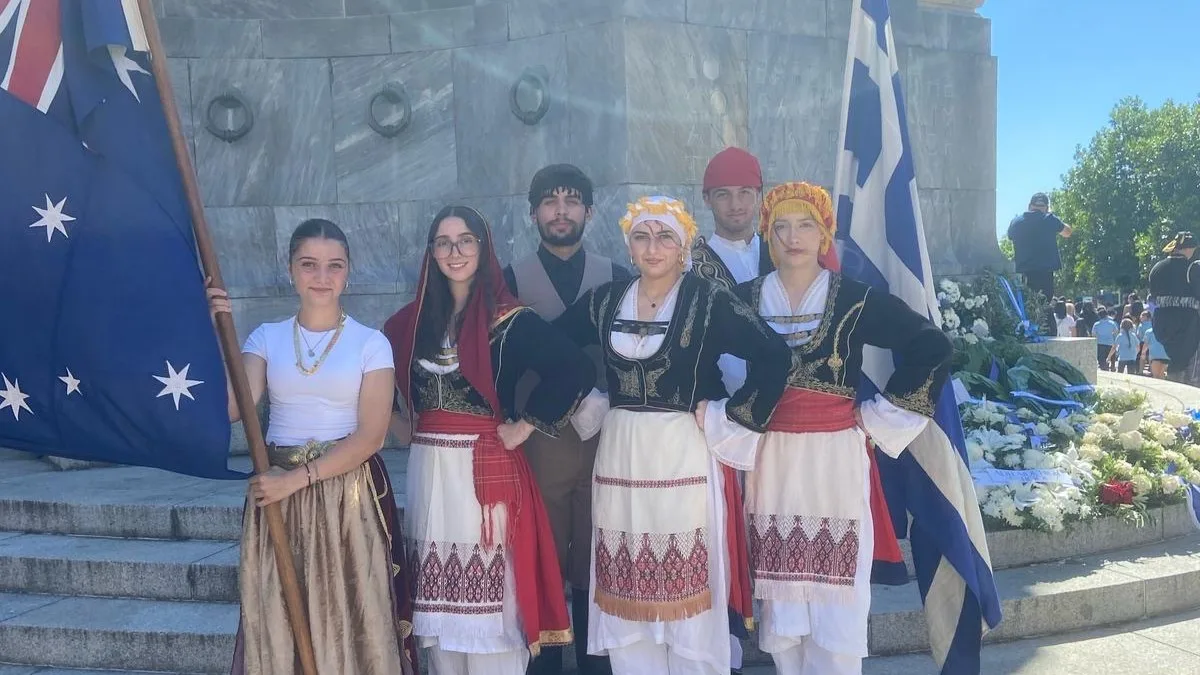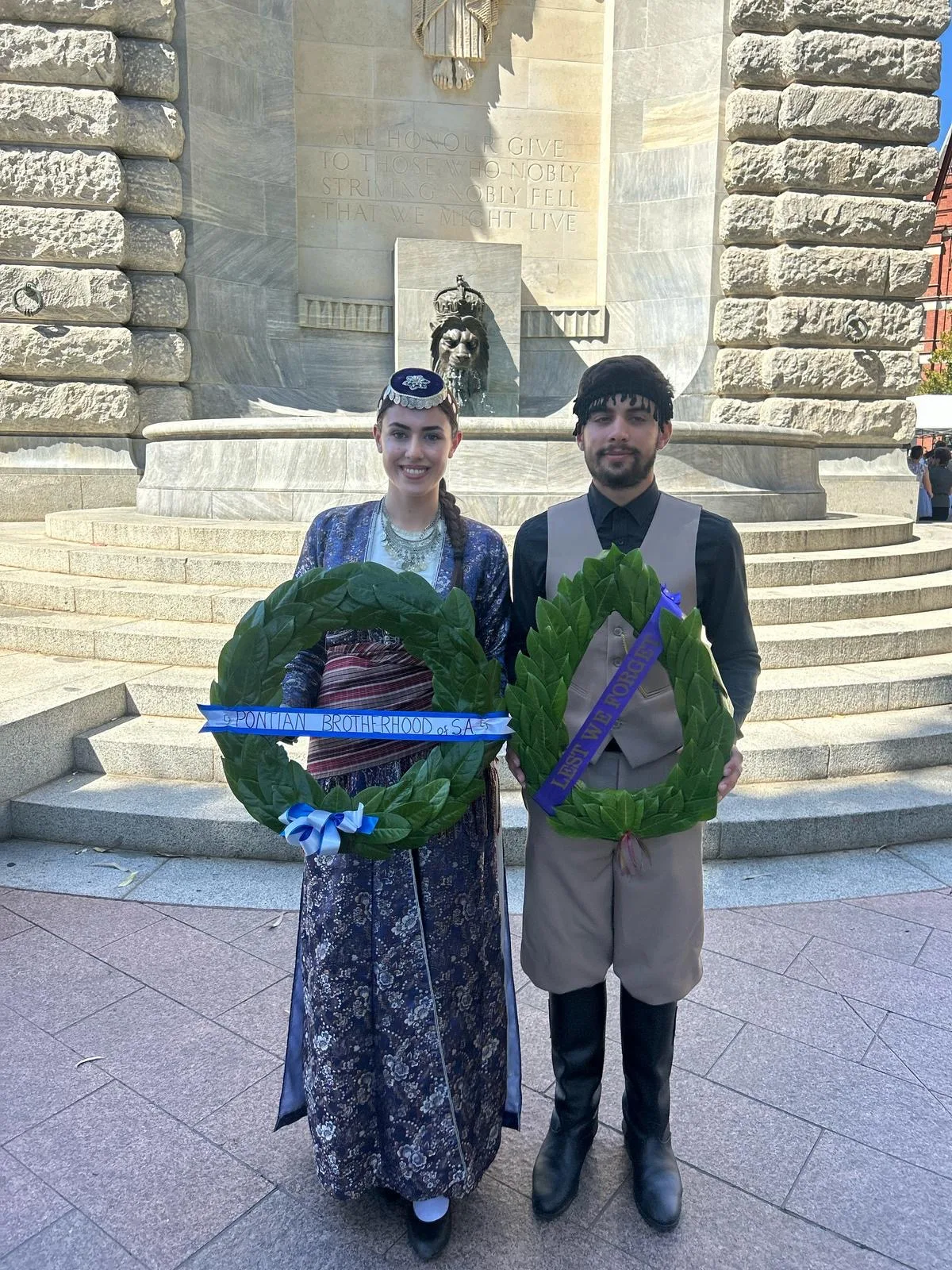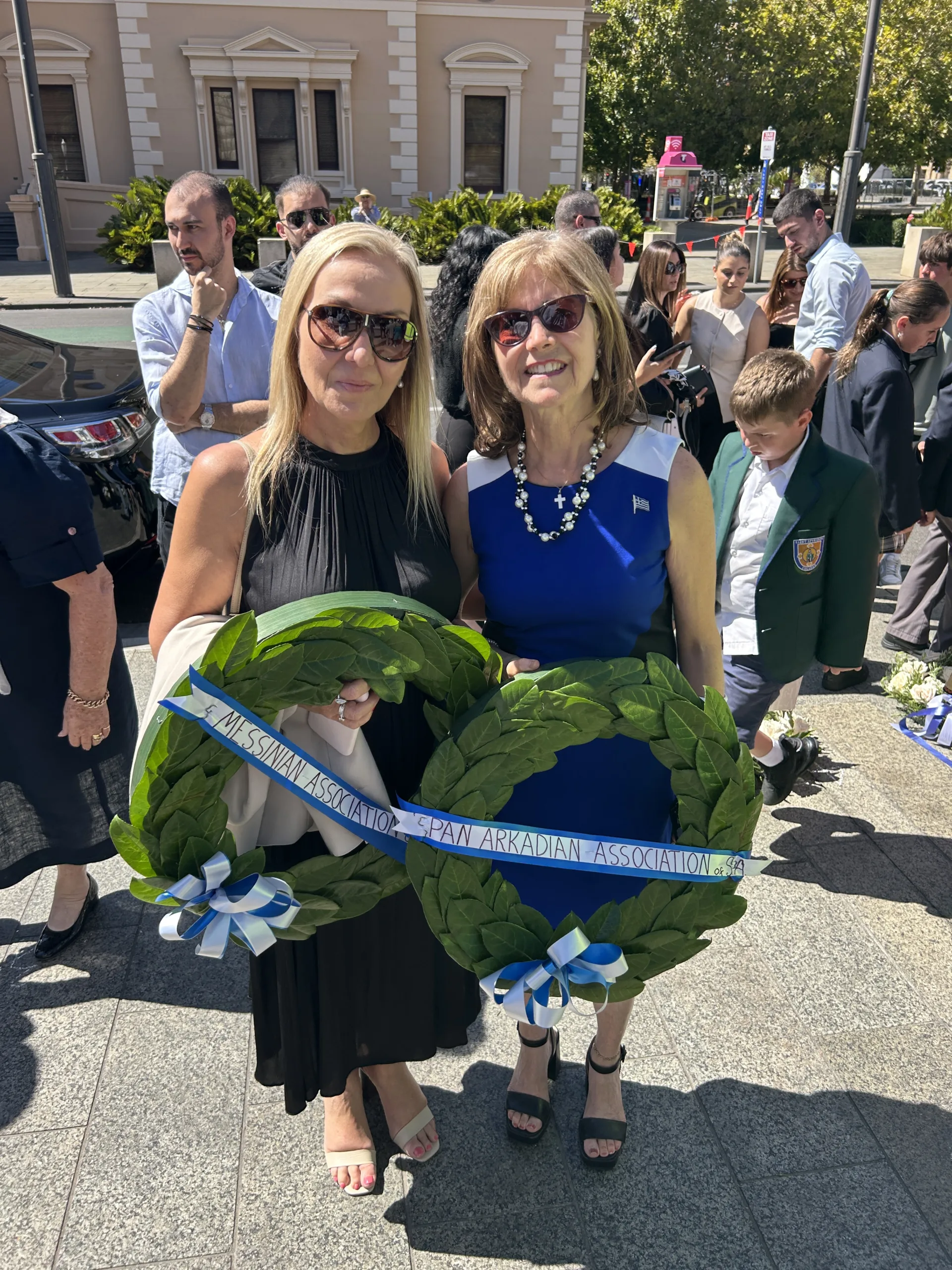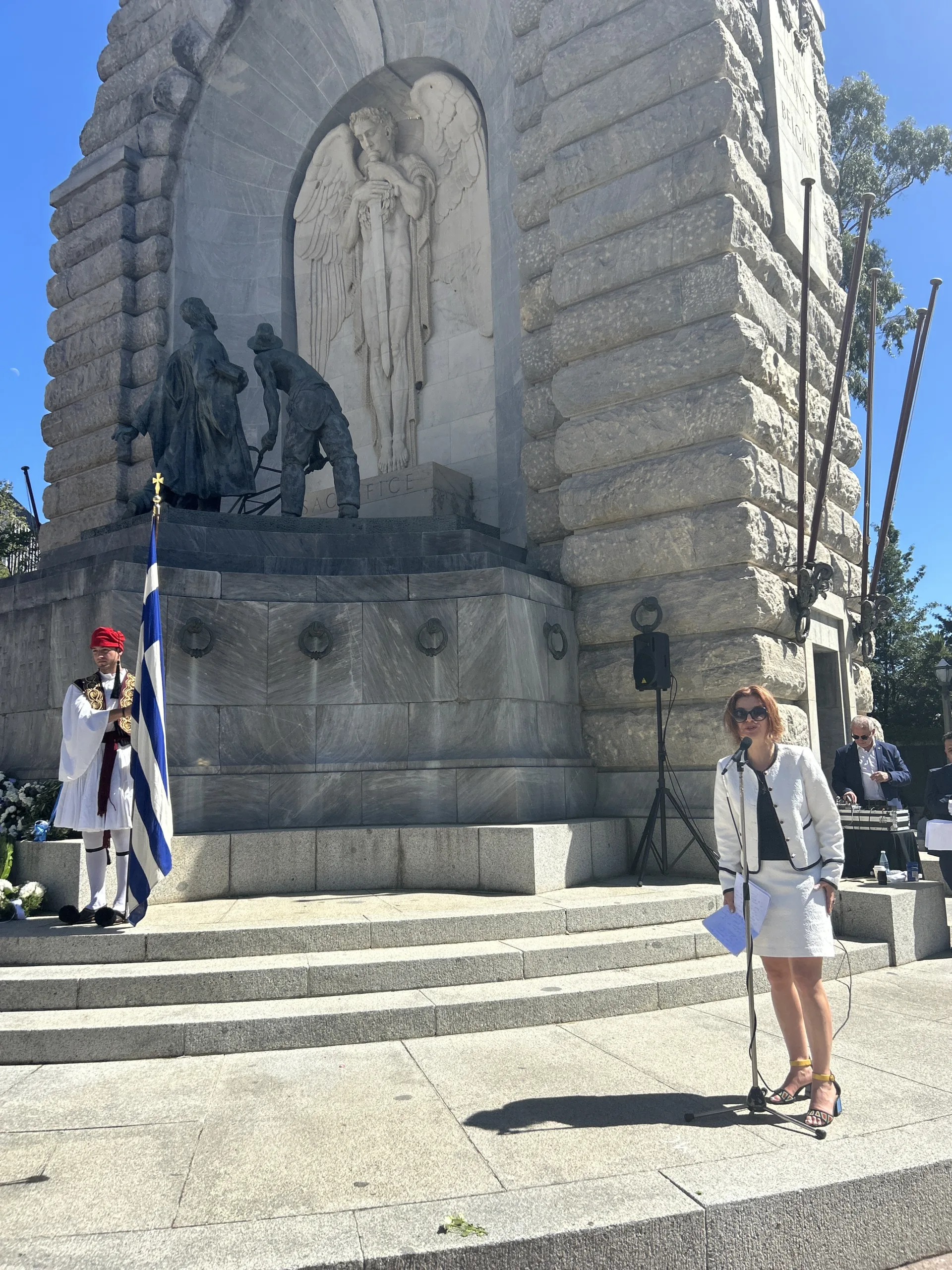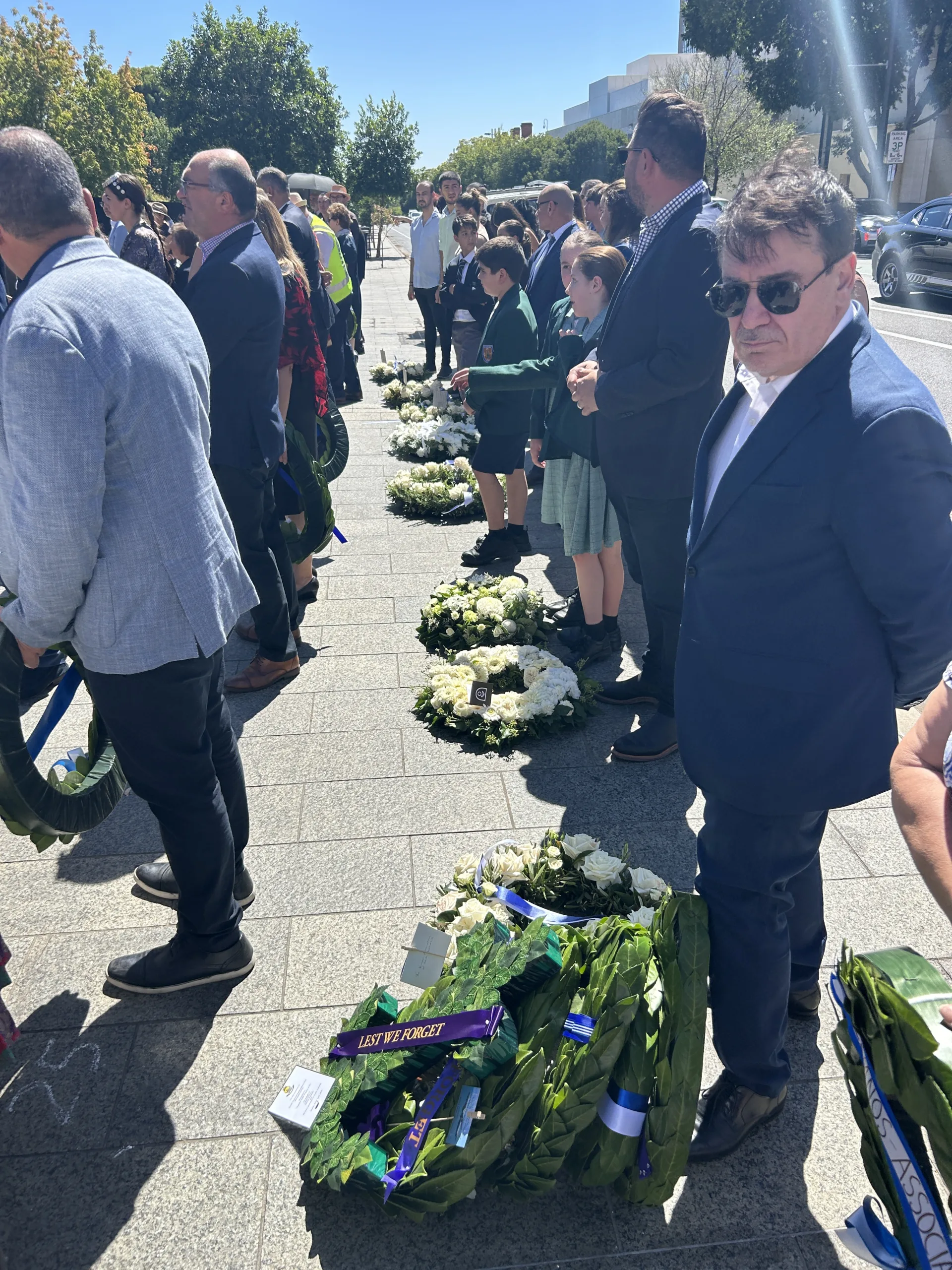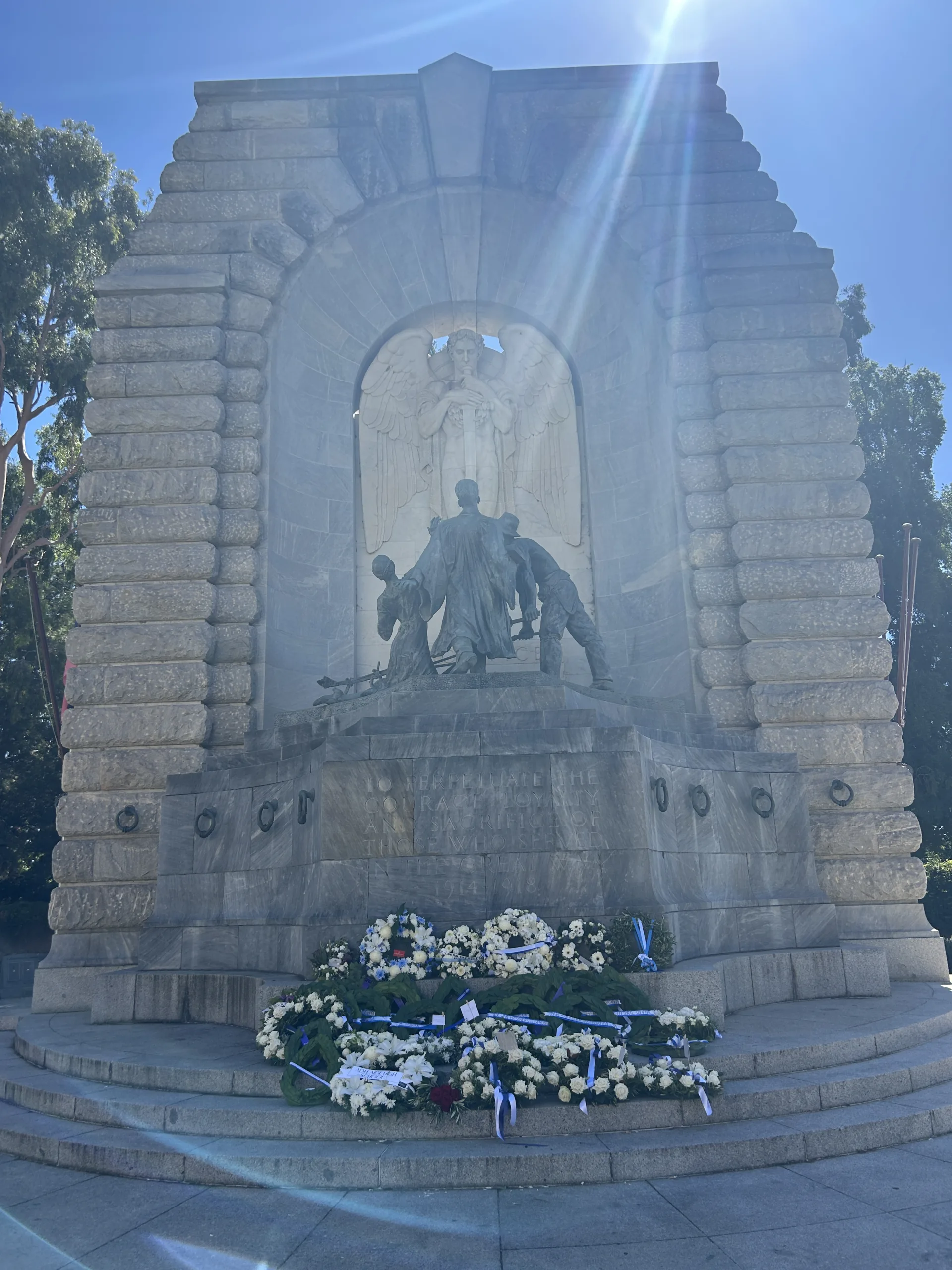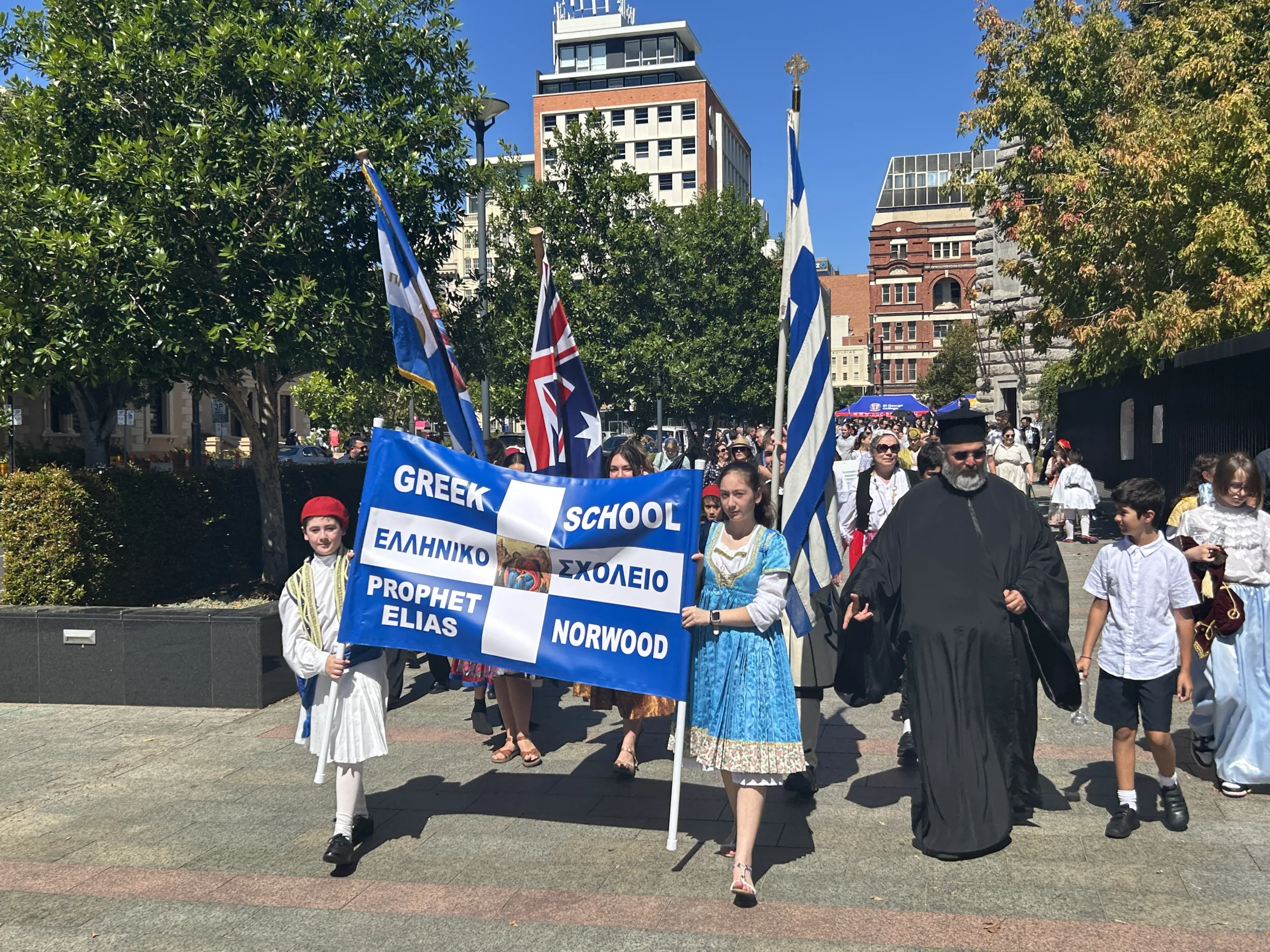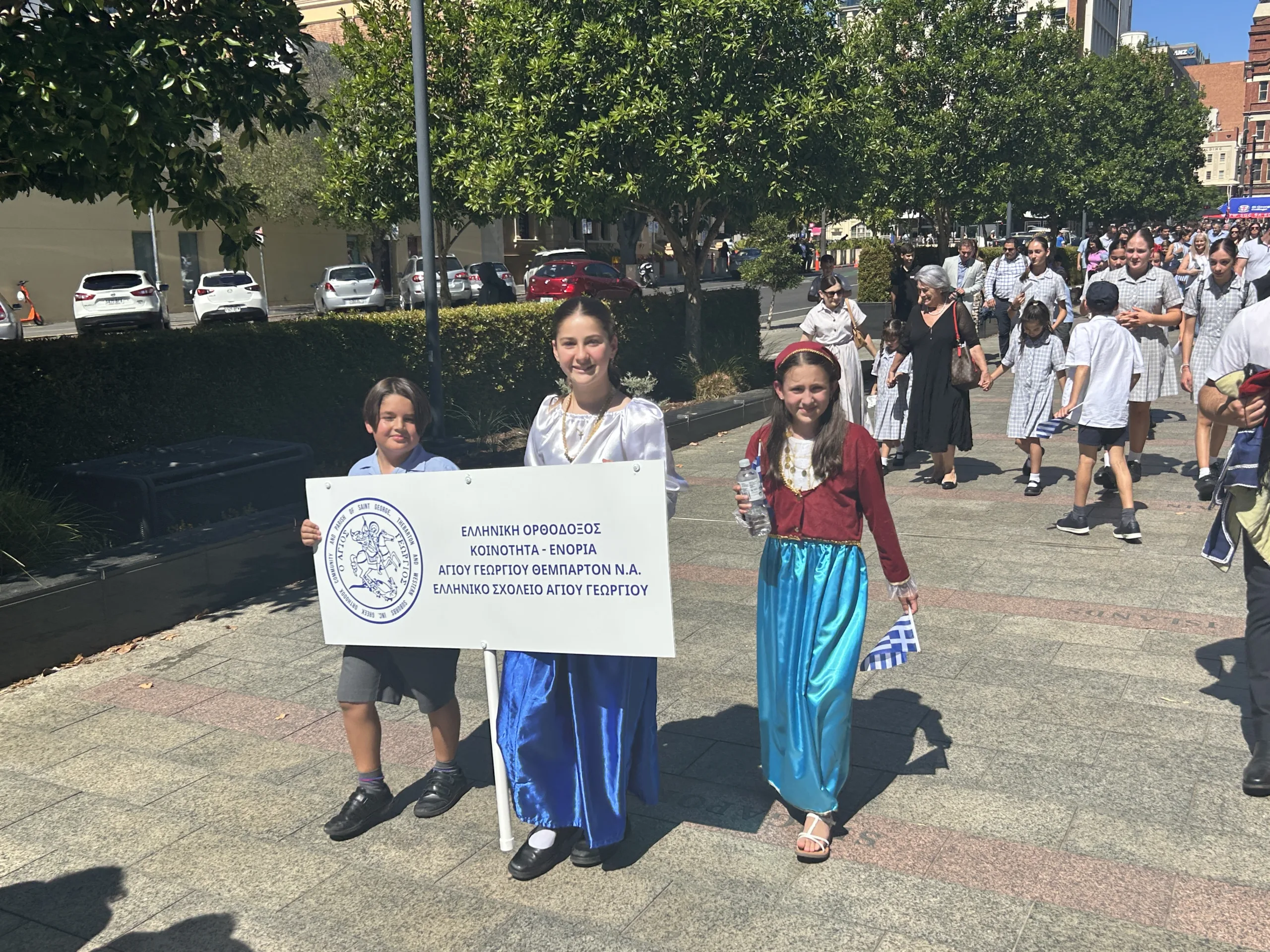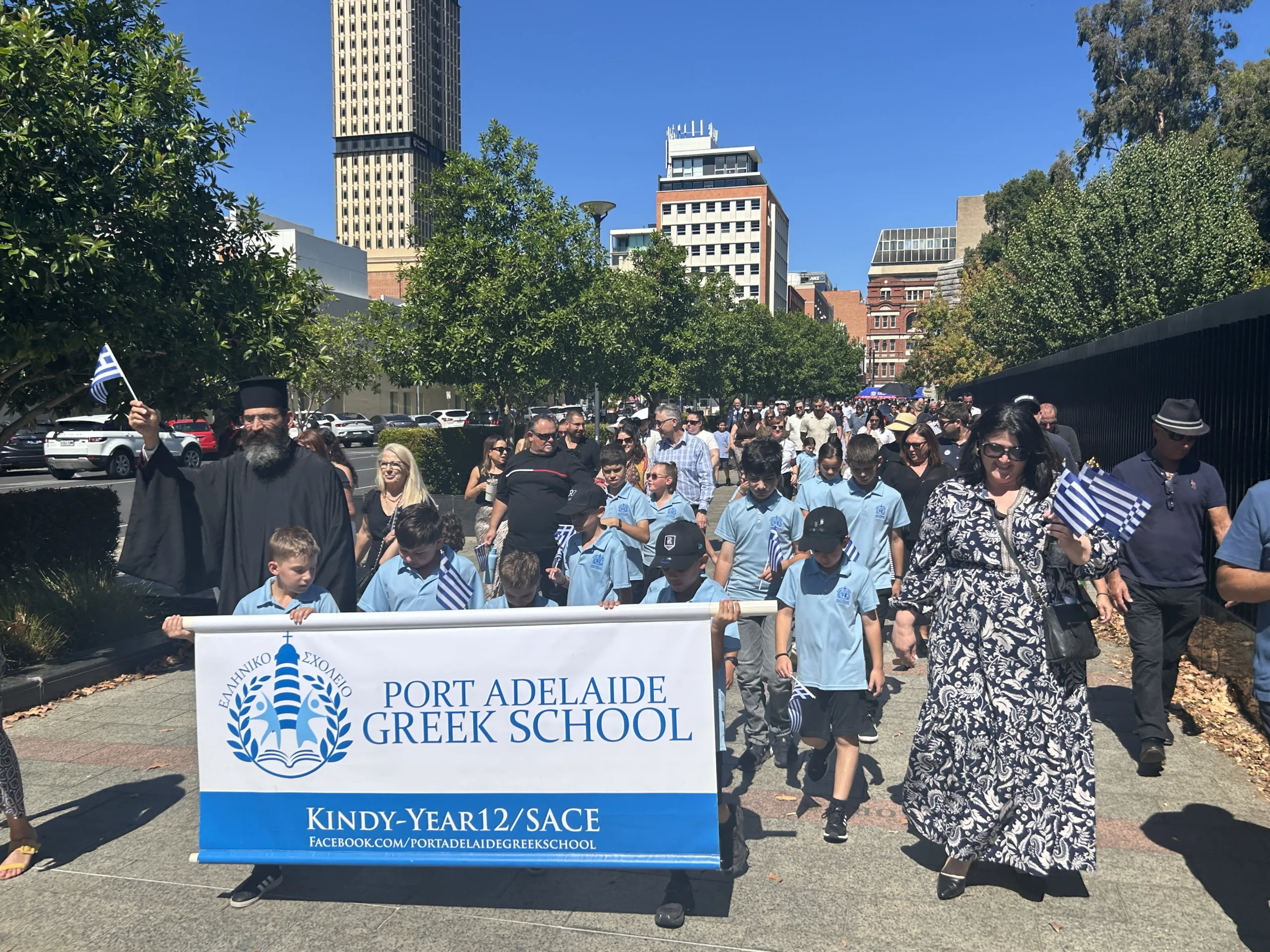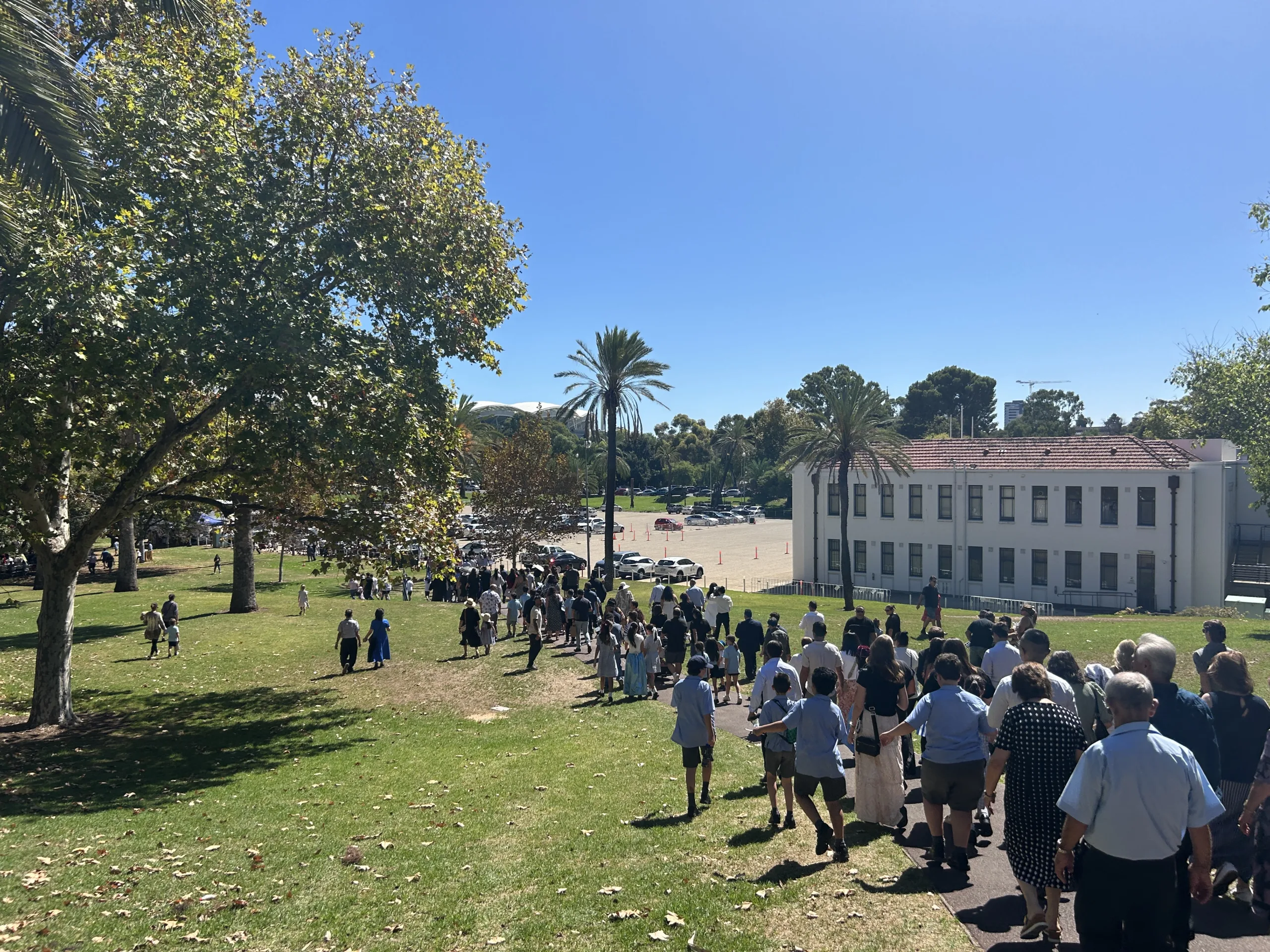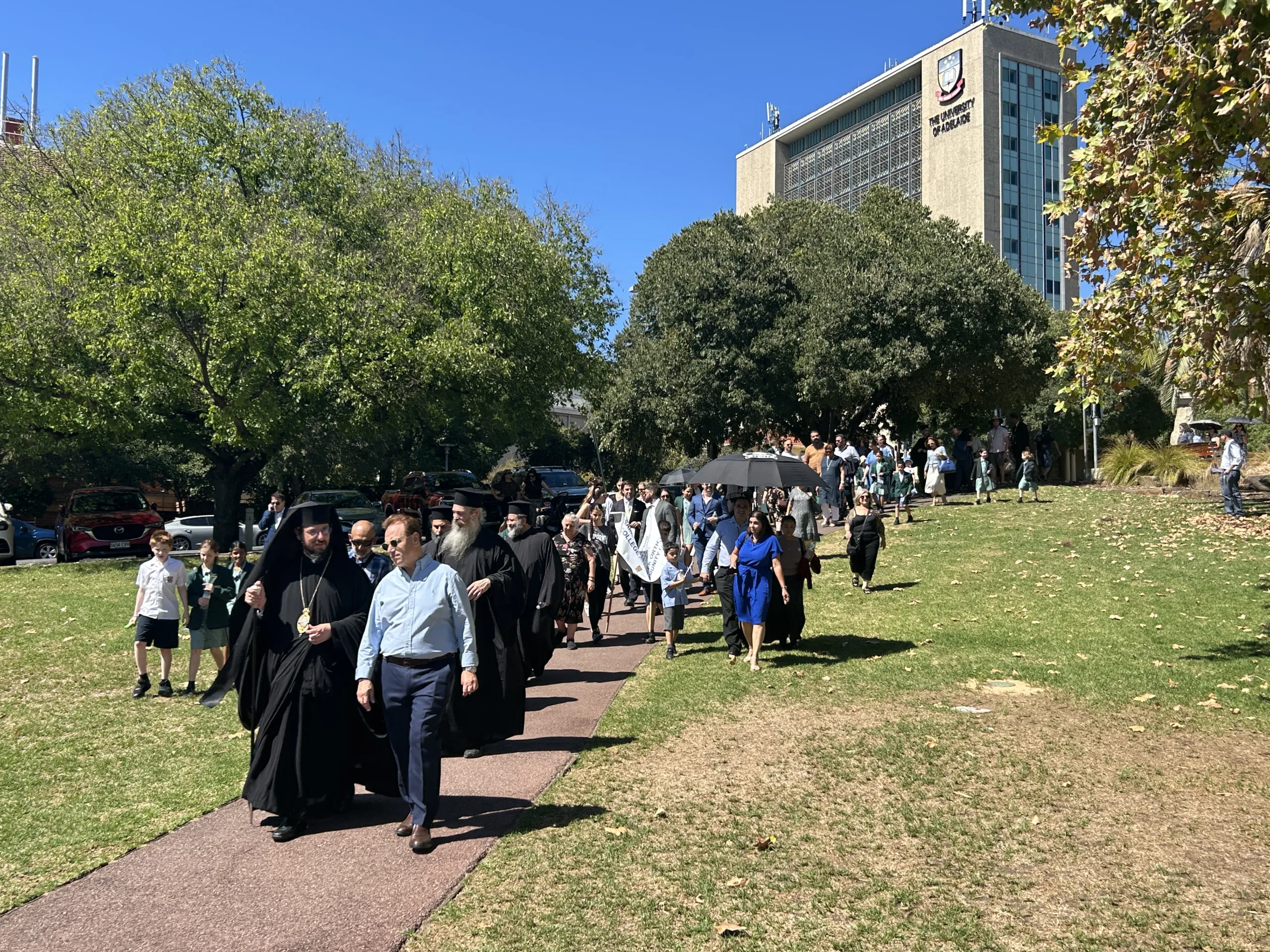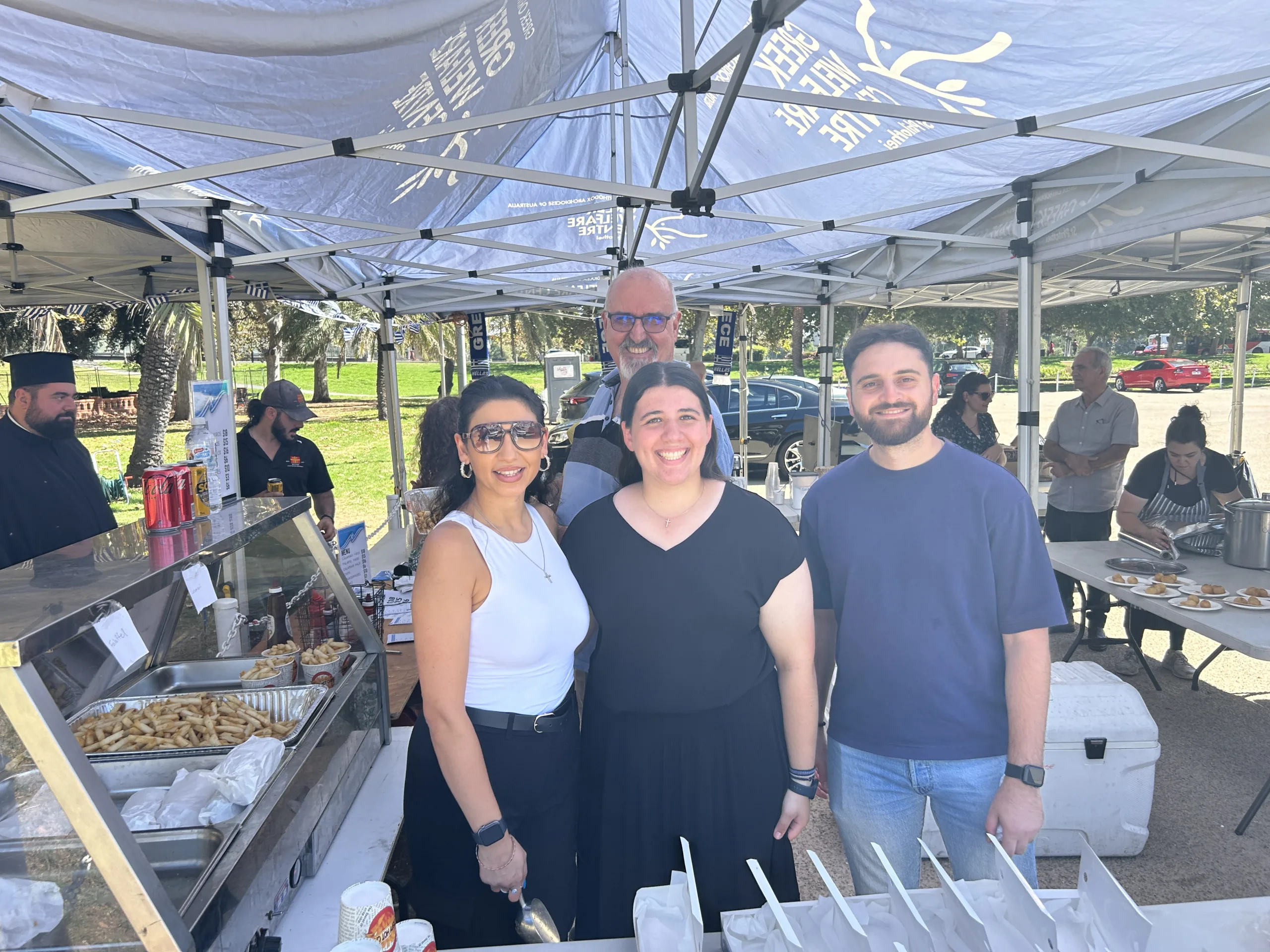On Sunday, March 23, Adelaide’s Greek community and wider multicultural groups gathered to commemorate the anniversary of the Greek War of Independence, marking the events of 25 March 1821.
The day’s commemorations, organised by the Holy Diocese of Adelaide and the Greek Orthodox Archdiocese of Australia, reflected both solemn remembrance and triumphant celebration.
The morning began with an Archieratical Divine Liturgy and Doxology at Saint Sophia, the Archiepiscopal Church of the Holy Wisdom of God, presided over by His Grace Bishop Silouan of Adelaide. While this liturgy was the central gathering, churches across South Australia simultaneously held their own services to honour the heroes of 1821.
Following the liturgy, a Memorial Service took place at the National War Memorial on North Terrace. There, wreaths were laid by dignitaries and community leaders, representatives from Hellenic organisations, government, and multicultural community groups came together to pay tribute to those who fought and sacrificed for Greek independence.
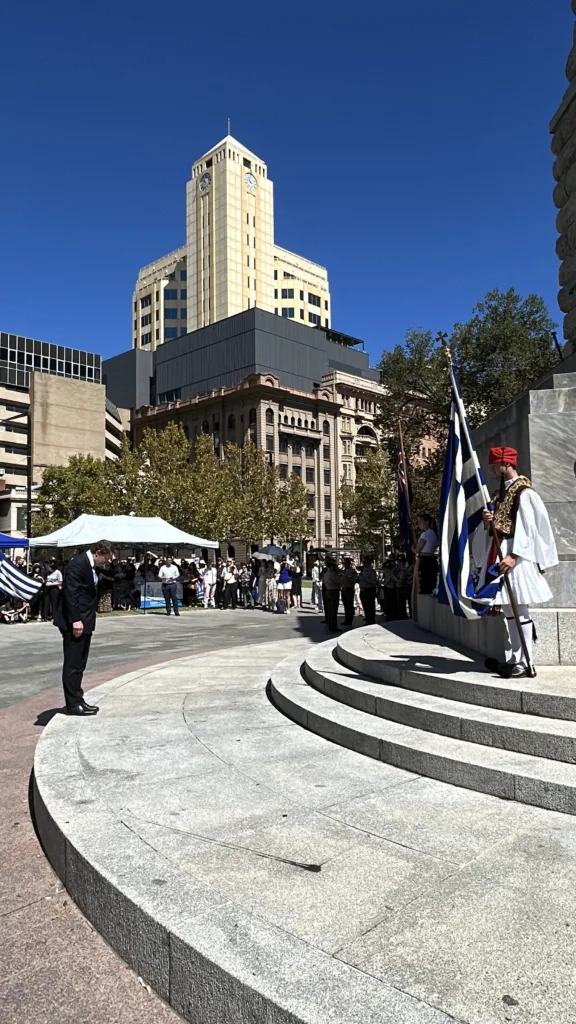
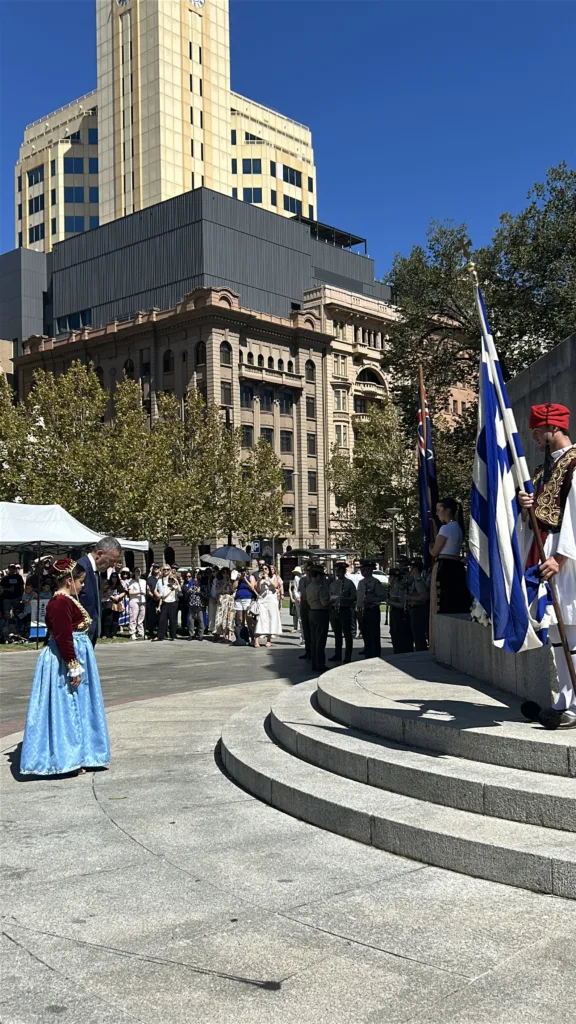
His Grace Bishop Silouan of Adelaide opened the memorial by stating that: “We are called to honour the heroes who came before us in every nation — and specifically today, we commemorate the heroes of a great movement: the liberation of the nation of Greece from the Ottoman Empire.”
“That occupation lasted four hundred years,” His Grace added. “Through this commemorative event, we offer a loud prayer and a bold cry for all wars to stop. Any war, any persecution — whether it be against one nation or even one person — is a violation on every person.”
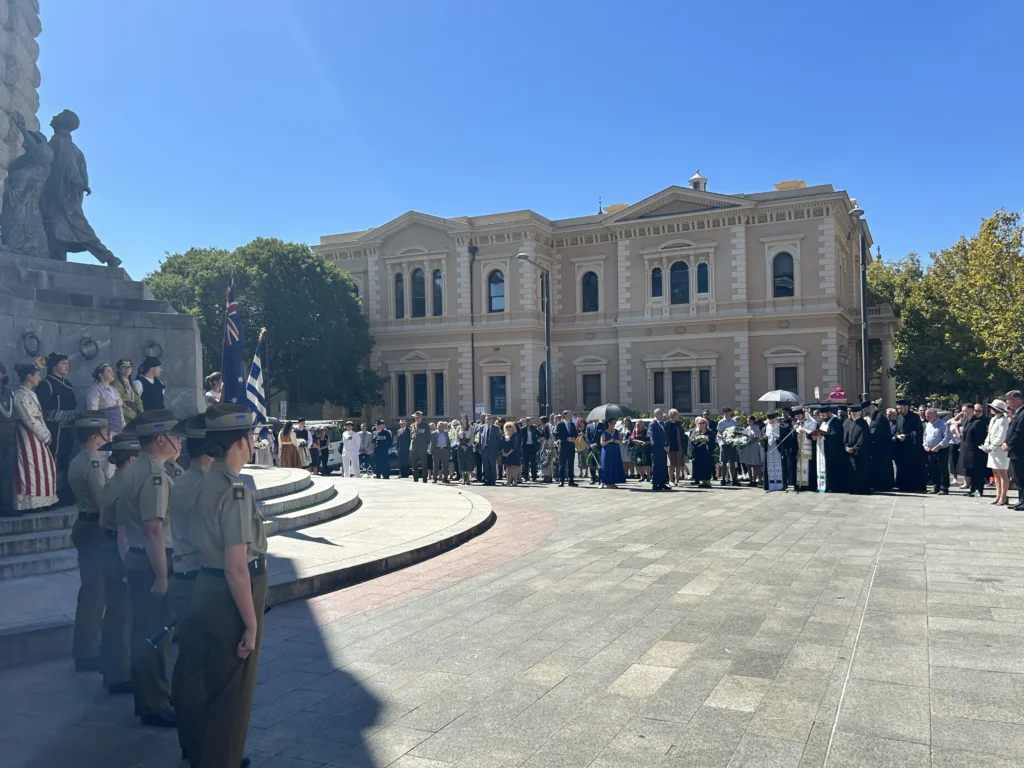
The Hon. Consul General of Greece in Adelaide, Dr Alexandra Theodoropoulou, addressing the crowd, remarked: “Today is a very special day for us Greeks — and also a special day for Adelaide. March 25th holds deep significance: for our people, for our culture, and for our shared values.”
She spoke powerfully of the flag’s symbolism, explaining, “Today…we see our colours — blue and white — everywhere. These are the colours our ancestors chose to represent our nation. The white of the skies, the blue of the sea — because we are a maritime people, a people of nature and freedom.”
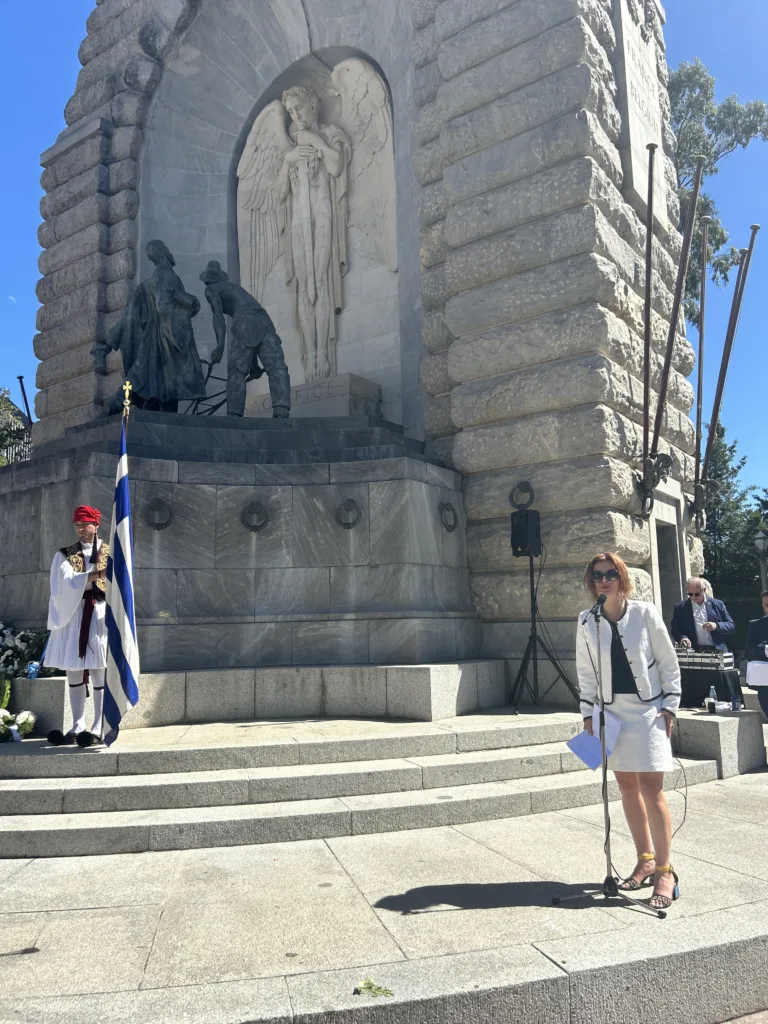
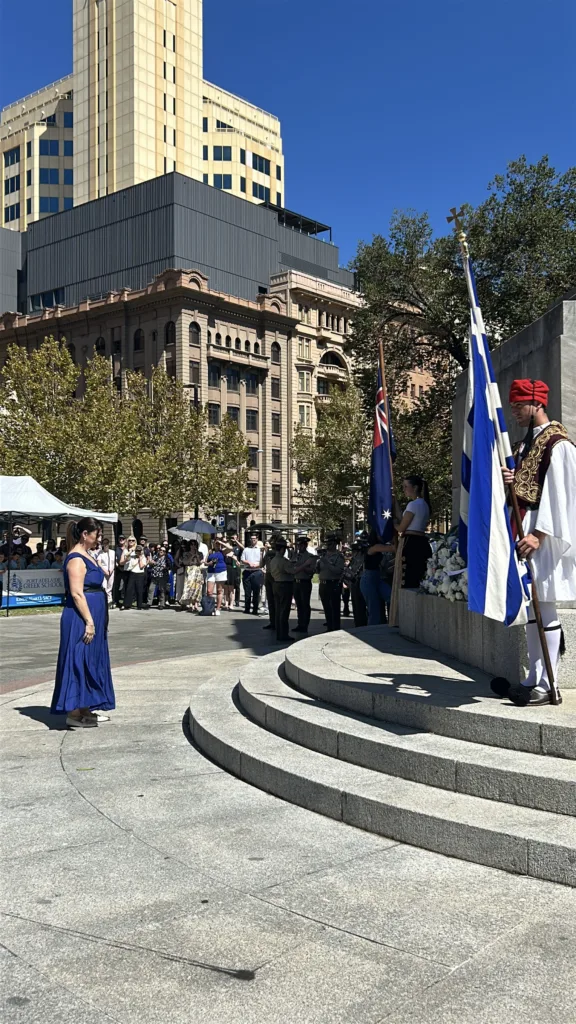
Linking the past to the present, she recounted how March 25th, which also marks the Greek Orthodox Feast of the Annunciation, was selected to announce both spiritual and national rebirth.
“For us Greeks, it was also the Annunciation of the coming of freedom to our motherland. That’s how our ancestors imagined it. That’s where they drew the strength to fight,” she said.
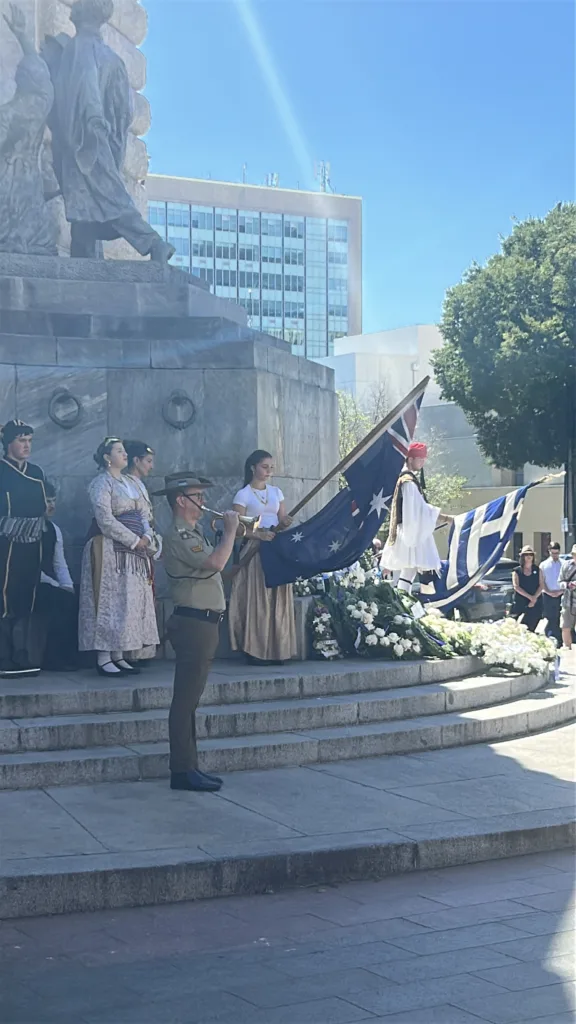
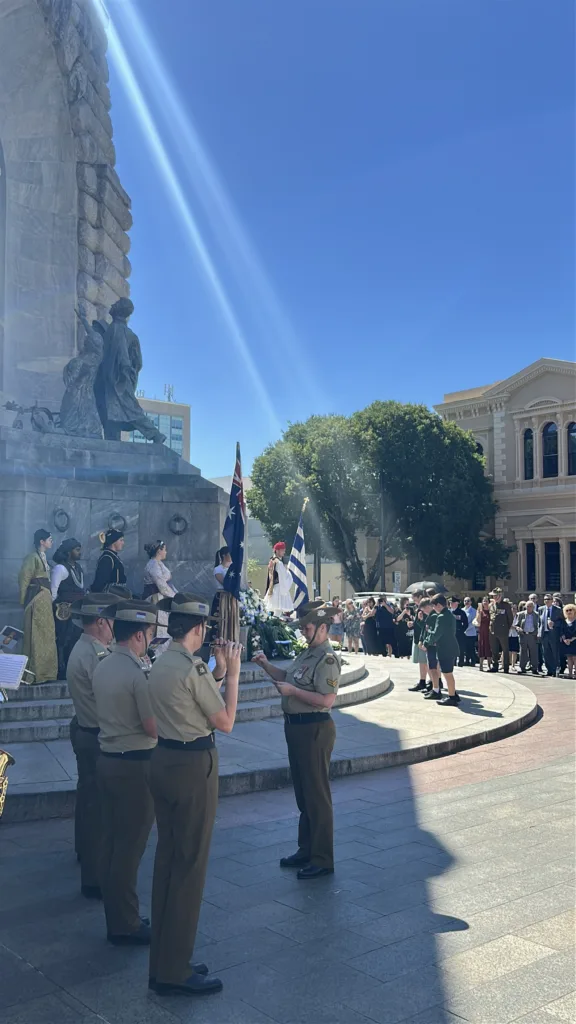
The Consul General also invoked the unity of Greeks around the world, reflecting on the revolution’s broader impact: “Greeks from all over — because Greeks were never limited to the borders of what is today the Greek state — rose up for a common cause… all Greeks united their hopes, their arms, and their dreams for one purpose: revolution.”
Dr Theodoropoulou spoke on the values that inspired the Greek Revolution, quoting the poet Andreas Kalvos: “Without virtue and courage, freedom does not exist.” She emphasised how these words encapsulated the spirit of 1821, not only guiding the revolutionaries but also resonating with Philhellenes around the world. She paid homage not only to Greek fighters, but to Philhellenes across the world, drawing comparisons to later generations of allies such as the ANZACs.
“These words inspired not only the Greeks, but also the Philhellenes — the lovers of Greece — like the ANZACs in later times,” she said. “Friends of Greece came to fight beside us. Why? Because they believed in the universal ideals our revolution represented.”
The commemorations served as a powerful reminder of the enduring values of freedom, dignity, and unity; principles that continue to bind communities across time and continents.
From the war memorial, a student parade made its way to the Torrens Parade Ground. Students from various Greek schools, including St George College, St Spyridon College, and Port Adelaide Greek Schools, performed national poems, sang traditional songs, and danced in celebration of the enduring spirit of independence.
The festival, held at the grounds, included food and drink stalls, cultural performances, and a strong spirit of unity. Families, dignitaries, and friends of the Greek community gathered to celebrate both their heritage and national identity.
